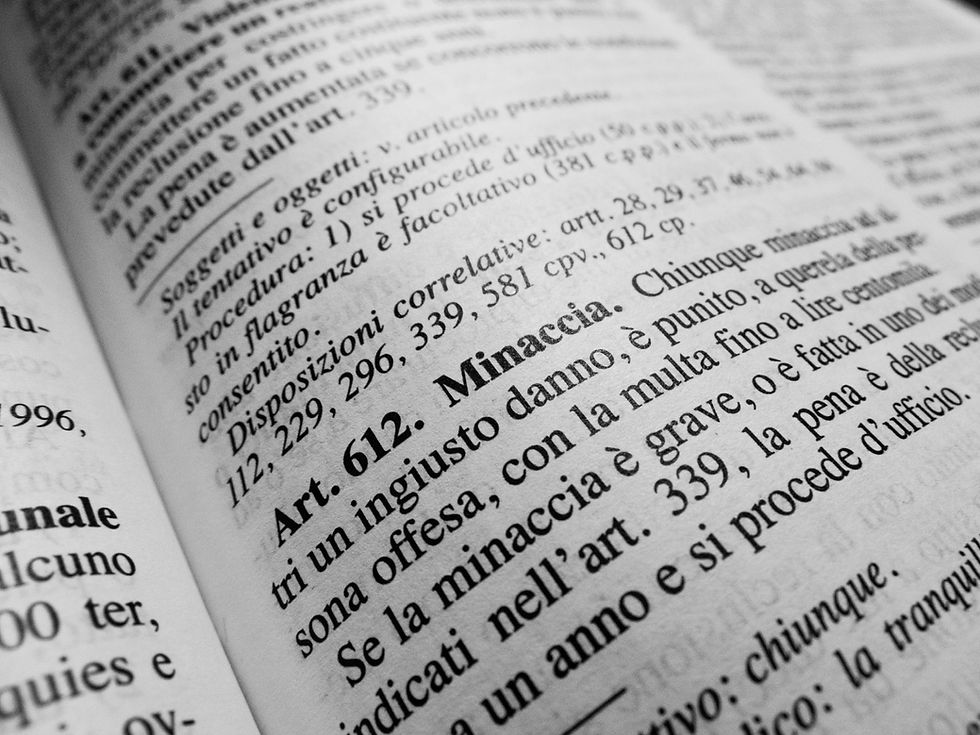Auto Insurance Coverages – Decoded!
- David French
- Oct 14, 2021
- 3 min read

We all know that one of the things we must do if we own a car is to get insurance on it. The state requires insurance for you to get your plates and tags. Your bank may require full coverage insurance if you have a loan. But what does your insurance actually cover, and what do all of these different things on your policy mean?
Let’s decode!
There are four main sections for an auto insurance policy. Let’s walk through each of them:
1. Liability
· This covers your financial liability in case you cause an accident. “Financial Liability” just means that if you hit something or someone, and cause damage, you owe that person money in order to fix those damages.
· You’ll usually find this broken in to two different categories:
o Bodily Injury: Pays for medical bills for injuries to people who are injured because of an accident that’s your fault.
o Property Damage: Pays for repairs to damaged property because of the accident, including their vehicles. This could also include someone’s fence, house, or other property that is damaged.
· Most states require you to carry Liability Insurance in order to get your license plates or renew your tags.
2. Medical payments
· Covers the medical payments for injuries sustained to you or your passengers because of an accident. This is usually a no-fault coverage, meaning it will pay out regardless of whether you or someone else is at-fault. In Missouri, this is an optional coverage.
· In Kansas, this is called Personal Injury Protection (PIP) coverage, and is required by the state.
3. Coverage for damage to your auto
· Covers damage to your auto due to an accident, regardless of fault. This is broken into two different types of coverage:
o Collision: Covers damage to your car for running in to something. This could be a telephone pole, a building, or another car.
o Comprehensive (sometimes known as Other Than Collision or OTC): Covers damage to your car from a variety of other causes other than Collision. This could include hitting a deer, a hail storm, a falling tree limb, or your vehicle being stolen.
· These coverages usually pay for the repair of your vehicle after taking out a deductible, which means an amount of money you’re responsible for paying before the insurance pays.
4. Uninsured and Underinsured Motorist Bodily Injury
· Uninsured Motorist: Pays for medical bills for you or your passengers when an accident is caused by someone who doesn’t have insurance.
· Underinsured Motorist: Pays for medical bills for you or your passengers when an accident is caused by someone who doesn’t have ENOUGH insurance. For example, someone causes an accident but only has minimum liability limits. You have medical bills in excess of $100,000. Underinsured Motorist coverage will pay the difference between the at-fault person’s liability limits and your actual medical bills.
You might hear your agent ask if you want “Full Coverage” or not. In general this is asking whether you want Comprehensive and Collision coverage. You always need to buy Liability and Uninsured Motorist coverages, as well as PIP coverage (in Kansas). But to get damage to your actual car covered, you need Comprehensive and Collision. If you purchase those coverages, you generally are considered to have Full Coverage.
Did you know you’re not stuck with your insurance company? When you go to the big brand stores, you have to shop around with multiple companies to get multiple quotes. When you come to us, we are independent and can shop several companies at once. And when one company starts raising rates, we’ll shop your renewal to find you a lower rate with a top company.
Give us a call, or a text, or an email, or click the dialogue box on the bottom corner to get started. You can even click here and you can get a quote started right here on our website!
***DISCLAIMER: Please note that none of the information contained in this post should be taken as a substitute for the actual language in your policy. These are explanations of general concepts and are NOT professional advice. Any claim will always be judged based on the facts of the claim and your actual policy language. Please consult your agent or insurance company for advice on how your policy responds.





Comments